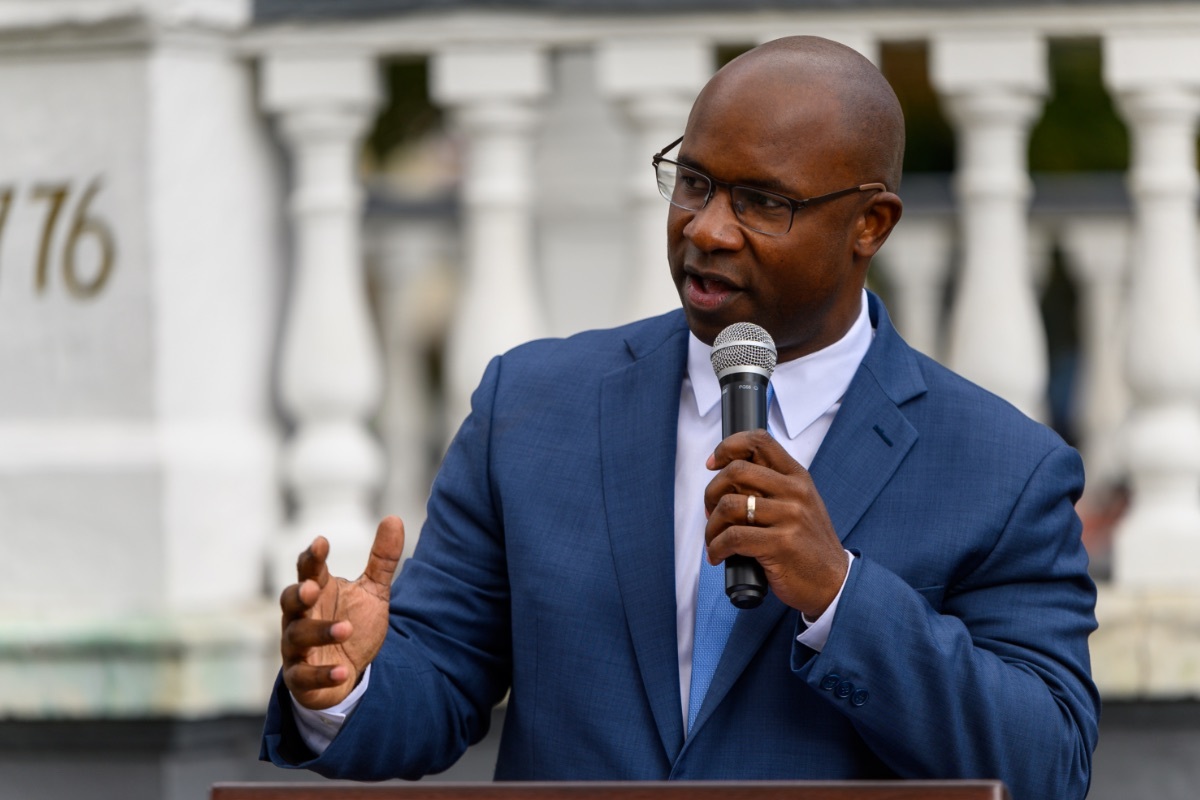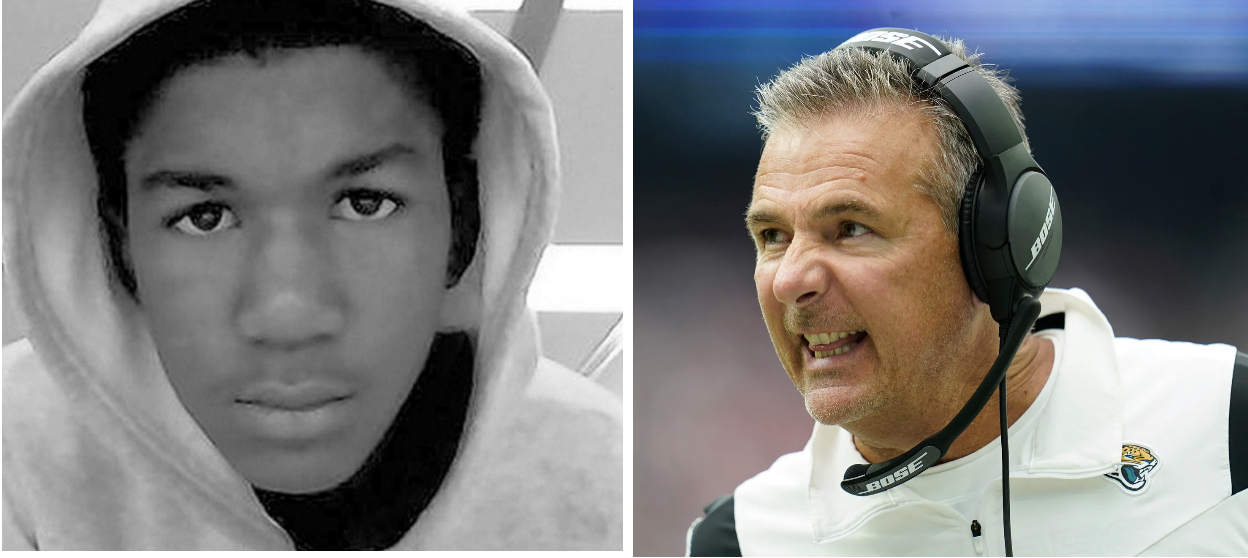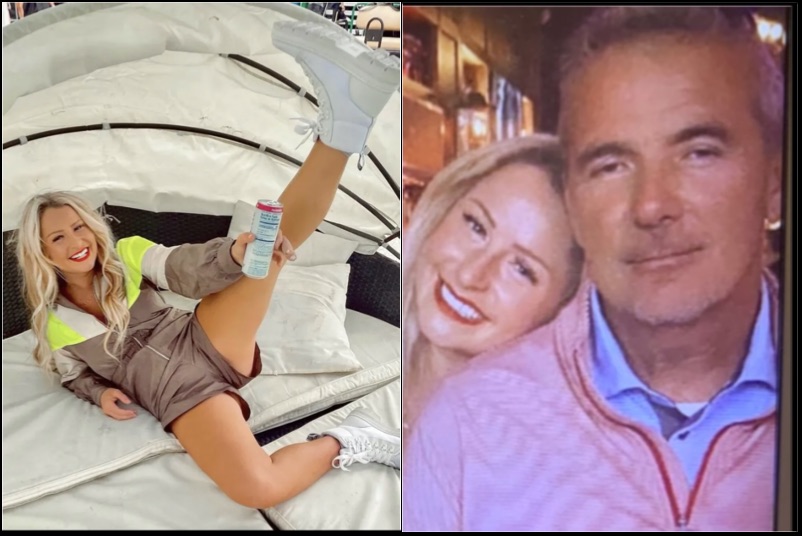I do not, nor did I ever, care who the mole was, at least not much. I was even a little fuzzy on why it mattered, in part because the act of watching Shonda Rhimes’ newest creation, marathon-style, does inspire the onset of a nasty case of plot-twist overload dizziness. But the truth is, pretty much all I want is to see Fitzgerald Thomas Grant III, in all his WASP regalia as the fictional 44th President of the United States, grab Olivia Pope’s butt. You know, because it’s a black butt. And it’s on TV. And at the same time, and for the same reasons, the last thing I ever want to see is him grab her butt; in fact, I place my crisscrossed fingers over my eyes so that I do not see it, because I am an American.
More than a black or African American – and not at all a white American, nor any other in between – I am an American, which means that it is equal parts familiar and foreign to conceptualize a black woman whose power and influence over a white man (in this case the white man of the free world) are matched only by her sexual prowess, her I-will-drop-kick-your-ass-ness, and the illustrious contents of her closet. As Tony Goldwyn, who plays Fitzgerald Grant, the adulterous, murderous, yet somehow still lovable President recently remarked, “She can rock a pair of white gloves, can’t she?” Well, of course she can. That’s why we spent all those seasons of ANTM letting another beautiful, brown-skinned businesswoman convince us that we did not know how to properly pronounce or use the word “fierce” and that she would be the one to lead us out of that darkness.
There is a little bit of “girl next door” in Kerry Washington’s Olivia Pope, but the wholesomeness of that recognition doesn’t smack of first kisses under poplar trees at twilight; it’s closer to “I know that black woman’s face, ‘cause it’s on the pancake box in my pantry.” This is America, after all. You can call it colorblind, but it’s more like double-blind, where ABC execs and treadmill-potatoes alike are lured into complicity – and over cliffhangers – with a radical project of race re-writing where narratives are given room to breathe and even to fly far away. You know, to where we like them: out of mind, but never really out of sight.
That Olivia Pope is the new darling of network television is less surprising than you might think, if you really take the time to think about it and to consider it within the context of America’s strange relationship with its dark racial past. After 40 years without a leading black female in a network drama – 40 years which has seen the likes of cornrows at Wimbledon and the White House – it’s more than about time, it’s way overdue (interestingly, if you Google “black female accomplishments of the past 40 years,” Kerry Washington’s Wikipedia page is the sixth entry). But the hype around Scandal feels different than the catharsis traditionally felt when glass ceilings are nudged by nappy or nappy-in-spirit heads of hair. This is at least in part due to the show’s success lying in not only one fictional black woman’s double-duty reign on the mountaintop and roll in the hay; Scandal’s real shocker is that it represents a trifecta of black female power, visibility, and influence in the entertainment industry. The show’s creator, Shonda Rhimes, who, according to Willa Paskin of The New York Times, is “one of the most powerful show runners in the business,” the real-life inspiration for its protagonist, crisis manager Judy Smith, and its leading lady, the hybrid star and character, brown bombshell Kerry Washington/Olivia Pope, who is brilliant, cunning, and stunningly beautiful.
Rhimes is a crafty one, to say the least. She learned the hard way “how to be a boss and a leader at the same time,” forced to transition from a self-sequestered screenwriter into the powerhouse Midas she is now, as her first network effort, Grey’s Anatomy, turned directly into prime-time gold. Paskin’s NYT piece paints a picture of a woman who earned and owns the right to write the counter-culture D.C. of Scandal, where “America is run by an African-American spin expert, a scheming first lady and a mercenary gay guy.” Furthermore, Shonda Rhimes’ facility with social networking has made her show the industry’s darling test-tube baby of multi-media engagement and viewership, prompting the Los Angeles Times’ Mary McNamara to crown Scandal “the show that Twitter built.” Rhimes regularly sends Tweets of gratitude to 350,000 followers and fans, who include among their number former-D.C. mayor Marion Barry; while cast members Tweet from the set, and fans respond in kind. All of this has made the show a social media phenomenon, and the first to achieve the multi-screen orgy network execs have been trying to pull off since prime-time ratings started falling.
Smith’s role as executive producer is crucial in that her consults provide the reality-based context for Olivia Pope’s business acumen and execution. And as for Kerry Washington, who graces the cover of next month’s Elle magazine, the show places her on the Hollywood A-list. And make no mistake, Washington is an A-plus, and she knows it, as evidenced by her playful and fully deserved recent boasting that she is “the luckiest broad in Hollywood now.” It’s hard to imagine someone else carrying the weight of the smut-side of Scandal with the poise that Washington has, casually describing her original career aspirations as a clinical psychologist that would use role play and performance theory to create positive outcomes for clients.
And now, I give you, Olivia Pope : Condi Rice+Beyonce+Oprah+please-please-please-maybe-one-day-if-you-behave-Michelle Obama-but-not-because-you're-just-a-smart-if-savvy-if-sexy-slut.
Once more, for the camera, Olivia Pope (if you’re a black woman): you, your daughter, the sister you didn’t fight with, the sister you did fight with, your favorite talented-10th auntie, the older cousin whose cool you couldn’t quite match growing up, Halle Berry from Queen, pretty much everybody but your mama, because she doesn’t have sex, or at least not that kind of sex.
You all but overlook the mistress thing, because at least she’s not Halle Berry from Monster’s Ball. Olivia paradoxically redefines, reinforces, and yet somehow still confounds every stripe of stereotype when it comes to black women in the American imagination. She is in charge, at times brutally so, but when a powerful white man (even one with his panties in a bunch) steps up to let her know that she is not – as Fitz did in this season’s penultimate episode with a militarized roar to his flush-faced paramour, ordering her to “stand down” – she sucks it up and she does as she is told.
There is a fourth powerful black woman who must be mentioned in this conversation: the viewer, who does all that oooh-ing, aaah-ing, and Tweeting. It’s Melissa Harris Perry and all of her friends. It’s Donna Brazille, Octavia Spencer, Gabrielle Union. It’s me, and another black girl I used to know who now only exists on Facebook. Scandal has the highest ratings of any scripted drama among black Americans, with 10.1 percent of black households tuning in. And according to NPR’s Eric Deggins, black women comprise “a valuable audience,” who “watch more TV than just about anyone else and control most purchasing decisions in black households, totaling nearly $1 trillion in spending power.” And what are these black women watching when they tune into Olivia’s exploits? Why, our wildest dreams and our worst nightmares, of course.
You see, watching Scandal as a black woman poses certain risks. (That said, I haven’t heard a lot from white women fan “gladiators,” so perhaps the same is true for them, too, with some variation.) For black women, there is the lure of an elusive truth, spoken aloud: that black female sexuality is not a myth, or an exaggeration, or an erasure. We have before us a woman we can wrap our head around, because she is perfect and perfectly lost, just like us; but considerably worse off, because none of us would ever be caught dead with a married Republican between our sheets. At the same time, there’d better be a black woman making love in the White House on TV in the second decade of the 21st century, because there damn sure is one in real life.
Her black male No. 2, Harrison, is the one she can always depend on, but it’s clear – particularly, in a scene later in that same “stand down” episode when he practically has to beg her to let him help her – that there is actually nothing a black man has to offer her. How significant is this? We know the general public is deeply familiar with the idea of a single black woman, doing it alone, without a black man to call her own. It’s a present-absence that for me calls to mind other absent-absences in Pope’s character development: she has no family, no roots, no community to speak of. Harrison is the closest we get. He is the token-other, bordering on magical from time to time, like during the episode when he figured out who was at fault for a plane crash by listening to a tape without taking notes while everyone else was! He just has that good Negro ear. He seems to have earned what Fitz gets for free, but he is not even granted true friend zone girlfriend status, like the kind you might listen to when they tell you the steamy affair you are engaged in with POTUS is a very bad idea.
I laughed out loud the first time I heard reference to her job as a fixer, especially since I already knew – as a recent flashback revealed early-affair-Olivia did, too – just how “Sally Hemmings and Thomas Jefferson” it was about to get. Her role as a problem-solver, her matriarchal relationship with her employees (yes, I know, they’re “gladiators”), along with her patriotism-laced and non-partisan reputation as an integral cog in the West Wing machine, all combine to create the ultimate fictive black woman. It’s no accident that a black woman writing a black woman whose above-the-belt exploits are drawn from the real life experiences of another black woman is the one place on television where Russian-esque ambassadors, closeted military gays, wealthy mothers of rapists, Latin American dictators and their unhappy wives alike can all have their dirty laundry not only aired, but washed, dried, pressed and lavender-scented by a professional. She is super-mammy-jezebel all rolled into one — she will clean up your mess, punish you if you need it, and if you’re a white man with the right power-swag, stuff her boob in your mouth when you get fussy.
And once more, with feeling: no, she does not, ever, need any help.



